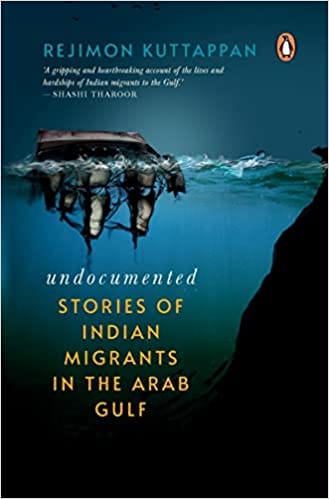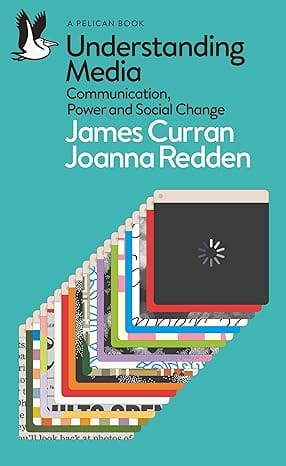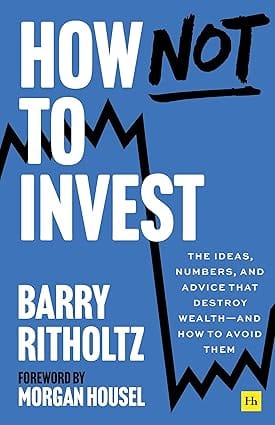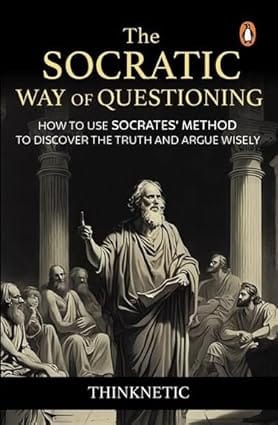-
Contemporary Fiction
- Contemporary Fiction
-
Children
- Children
-
Comics & Graphic Novels
- Comics & Graphic Novels
-
Non-Fiction
- Non-Fiction
-
Fiction
- Fiction
Our complicated and fragile global economy relies on the unacknowledged labour of a subterranean network of undocumented migrant workers. Despite them providing vital support to host economies, governments continue to turn a blind eye to these migrants' woes without any consequences. In the absence of documents to speak for them, their human rights are systematically abused, their voices ignored, their existence refuted.
The women, as is often the case, suffer under the dual attacks of patriarchy and anonymity. Exigencies of bureaucracy ensure that the children are often unregistered and even lack passports. The result is a truly exploited populace without much relief in sight. They survive on sheer courage and perseverance, shedding blood, sweat and tears that end up fuelling the thumping home and host economies.
In Undocumented, journalist and migrant-rights researcher Rejimon Kuttappan brings to light the lives of these oft-ignored migrants through stories of six Indians in the Arab Gulf, and through them, voices the plight of millions more. Delving into histories both personal and national to establish where we are and how we got here, the author lays bare the lives of people betrayed by their own into human trafficking, into poverty, and into exile in a land that only glimmers with promise.
Review
In Undocumented, Rejimon Kuttappan, a veteran campaigner for migrant rights, provides a gripping and heartbreaking account of the lives of Indian migrants to the Gulf, and the numerous personal and legal hardships they face. From visa struggles to the crushing weight of societal expectations, the suffering recounted in this book is immense, and should concern every Indian deeply.
-- Dr Shashi Tharoor, Indian parliamentarian, writer and former UN Under Secretary GeneralThis book is written with great clarity, taking the reader along with the many varied journeys of Keralite migrants to Oman. It shows how the marginalization of migrants is intensified by those who are undocumented, whether by design, bastardry, serendipity, or fate. Note, however, that book is more than a collection of migrant stories, which alone are fascinating, heart-rending accounts. Importantly, the book is also about migration journalism. It is also about the author as an investigative journalist, an activist journalist; a caring, humanitarian journalist, committed and determined to reveal the underbelly of this migration corridor that suppresses the truth about migrant labour exploitation and tragedy. Thus, the author does not pretend to be an invisible, arm's-length narrator. Throughout the text he explains and reflects not only upon his own actions and the help he gives to his informants as a participant activist observer, but also on the limitations and liberations of journalism in the region. The author skillfully juxtaposes the individual narratives with the political, economic, and cultural histories that have connected Kerala and Oman for millennia. Deceived and trapped by the kafala system, these are narratives of hardship, mistakes, homesickness, separated families, longing and guilt, struggle, disappointment, and family rejection. There is the gripping story of Majeed's escape, the sham and violent marriage of Jumaila, the dangerous rescue of Sushmitha. Exposing an entrenched culture of corruption, there is Appunni, who stuck to his moral principles and "lost everything." There is the trafficking and enslavement of women, the little-known Arab Spring protests in Oman and the country's long history of rebellions; the Covid-19 pandemic resulting in employer wage theft, illness and death, and forced repatriation home to unemployment and poverty. Fraternizing with progressive Omani nationals and wending his way through local cultural mores, these are rich ethnographies like a gripping mini-series. And then there are the "monkey visas" and the wisdom to see humour in the face of tragedy that elaborates the human experience.
-- Dr Rajai Ray Jureidini, Professor of Migration Ethics and Human Rights, Hamad Bin Khalifa University, QatarAs a storyteller, Rejimon Kuttappan takes us into the world of migrant workers whose lives are turned upside down as they deal with the status of being "undocumented". He reveals throughout the book how an "undocumented status" is constructed in migration management systems that thrive on the exploitation of labour. He tells of the power of resilience of migrant workers who go through untold challenges to make a living. Artfully, he makes the reader put down the book several times and pick it up again each time while reflecting on the power dynamics, the inequalities, and the systemic and structural deficits that have plagued labour for the longest time. In the end, the story is about heroes who despite the odds survive, and in telling their stories Rejimon Kuttappan captures the indefatigable spirit of the undocumented.
-- William Gois, Regional Coordinator Migrant Forum in Asia, ManilaAbout the Author
Rejimon Kuttappan is an independent journalist and a migrant rights defender. He was Chief Reporter for the Times of Oman until he was deported back to India in 2017, for exposing human trafficking and modern slavery in the Arab Gulf through a front-page news story.
Rejimon now writes for the Thomson Reuters Foundation (TRF), Equal Times, Migrant Rights, Middle East Eye, The Hindu, Times of India, The Caravan, Wire, The Leaflet, and various other Indian news portals.
He has done two media fellowships with the International Labour Organisation (ILO) on labour migration and human trafficking, and one each with TRF and National Foundation of India (NFI) on forced labour and Gulf migration, respectively.
Rejimon is also a researcher for the Migrant Forum in Asia and has worked as a consultant for the ILO and International Trade Union Confederation (ITUC).
In 2019, he authored an anthology, Rowing Between Rooftops: The Heroic Fishermen of Kerala Floods, telling the stories of heroic fishermen who rescued thousands from the 2018 Kerala floods.
Rejimon belongs to the Panan Dalit community of Kerala. Historically, Panans were ballad singers who narrated the acts of the then great warriors and kings. He wishes to continue this storytelling legacy through his books and writing.
Rejimon lives in Kerala and can be followed on @rejitweets. He can be contacted at [email protected]
- Home
- Non-Fiction
- Undocumented Stories Of Indian Migrants In The Arab Gulf
Undocumented Stories Of Indian Migrants In The Arab Gulf
SIZE GUIDE
- ISBN: 9780143451471
- Author: Rejimon Kuttappan
- Publisher: Penguin Books
- Pages: 296
- Format: Paperback
Book Description
Our complicated and fragile global economy relies on the unacknowledged labour of a subterranean network of undocumented migrant workers. Despite them providing vital support to host economies, governments continue to turn a blind eye to these migrants' woes without any consequences. In the absence of documents to speak for them, their human rights are systematically abused, their voices ignored, their existence refuted.
The women, as is often the case, suffer under the dual attacks of patriarchy and anonymity. Exigencies of bureaucracy ensure that the children are often unregistered and even lack passports. The result is a truly exploited populace without much relief in sight. They survive on sheer courage and perseverance, shedding blood, sweat and tears that end up fuelling the thumping home and host economies.
In Undocumented, journalist and migrant-rights researcher Rejimon Kuttappan brings to light the lives of these oft-ignored migrants through stories of six Indians in the Arab Gulf, and through them, voices the plight of millions more. Delving into histories both personal and national to establish where we are and how we got here, the author lays bare the lives of people betrayed by their own into human trafficking, into poverty, and into exile in a land that only glimmers with promise.
Review
In Undocumented, Rejimon Kuttappan, a veteran campaigner for migrant rights, provides a gripping and heartbreaking account of the lives of Indian migrants to the Gulf, and the numerous personal and legal hardships they face. From visa struggles to the crushing weight of societal expectations, the suffering recounted in this book is immense, and should concern every Indian deeply.
-- Dr Shashi Tharoor, Indian parliamentarian, writer and former UN Under Secretary GeneralThis book is written with great clarity, taking the reader along with the many varied journeys of Keralite migrants to Oman. It shows how the marginalization of migrants is intensified by those who are undocumented, whether by design, bastardry, serendipity, or fate. Note, however, that book is more than a collection of migrant stories, which alone are fascinating, heart-rending accounts. Importantly, the book is also about migration journalism. It is also about the author as an investigative journalist, an activist journalist; a caring, humanitarian journalist, committed and determined to reveal the underbelly of this migration corridor that suppresses the truth about migrant labour exploitation and tragedy. Thus, the author does not pretend to be an invisible, arm's-length narrator. Throughout the text he explains and reflects not only upon his own actions and the help he gives to his informants as a participant activist observer, but also on the limitations and liberations of journalism in the region. The author skillfully juxtaposes the individual narratives with the political, economic, and cultural histories that have connected Kerala and Oman for millennia. Deceived and trapped by the kafala system, these are narratives of hardship, mistakes, homesickness, separated families, longing and guilt, struggle, disappointment, and family rejection. There is the gripping story of Majeed's escape, the sham and violent marriage of Jumaila, the dangerous rescue of Sushmitha. Exposing an entrenched culture of corruption, there is Appunni, who stuck to his moral principles and "lost everything." There is the trafficking and enslavement of women, the little-known Arab Spring protests in Oman and the country's long history of rebellions; the Covid-19 pandemic resulting in employer wage theft, illness and death, and forced repatriation home to unemployment and poverty. Fraternizing with progressive Omani nationals and wending his way through local cultural mores, these are rich ethnographies like a gripping mini-series. And then there are the "monkey visas" and the wisdom to see humour in the face of tragedy that elaborates the human experience.
-- Dr Rajai Ray Jureidini, Professor of Migration Ethics and Human Rights, Hamad Bin Khalifa University, QatarAs a storyteller, Rejimon Kuttappan takes us into the world of migrant workers whose lives are turned upside down as they deal with the status of being "undocumented". He reveals throughout the book how an "undocumented status" is constructed in migration management systems that thrive on the exploitation of labour. He tells of the power of resilience of migrant workers who go through untold challenges to make a living. Artfully, he makes the reader put down the book several times and pick it up again each time while reflecting on the power dynamics, the inequalities, and the systemic and structural deficits that have plagued labour for the longest time. In the end, the story is about heroes who despite the odds survive, and in telling their stories Rejimon Kuttappan captures the indefatigable spirit of the undocumented.
-- William Gois, Regional Coordinator Migrant Forum in Asia, ManilaAbout the Author
Rejimon Kuttappan is an independent journalist and a migrant rights defender. He was Chief Reporter for the Times of Oman until he was deported back to India in 2017, for exposing human trafficking and modern slavery in the Arab Gulf through a front-page news story.
Rejimon now writes for the Thomson Reuters Foundation (TRF), Equal Times, Migrant Rights, Middle East Eye, The Hindu, Times of India, The Caravan, Wire, The Leaflet, and various other Indian news portals.
He has done two media fellowships with the International Labour Organisation (ILO) on labour migration and human trafficking, and one each with TRF and National Foundation of India (NFI) on forced labour and Gulf migration, respectively.
Rejimon is also a researcher for the Migrant Forum in Asia and has worked as a consultant for the ILO and International Trade Union Confederation (ITUC).
In 2019, he authored an anthology, Rowing Between Rooftops: The Heroic Fishermen of Kerala Floods, telling the stories of heroic fishermen who rescued thousands from the 2018 Kerala floods.
Rejimon belongs to the Panan Dalit community of Kerala. Historically, Panans were ballad singers who narrated the acts of the then great warriors and kings. He wishes to continue this storytelling legacy through his books and writing.
Rejimon lives in Kerala and can be followed on @rejitweets. He can be contacted at [email protected]
User reviews
NEWSLETTER
Subscribe to get Email Updates!
Thanks for subscribing.
Your response has been recorded.

India's Iconic & Independent Book Store offering a vast selection of books across a variety of genres Since 1978.
"We Believe In The Power of Books" Our mission is to make books accessible to everyone, and to cultivate a culture of reading and learning. We strive to provide a wide range of books, from classic literature, sci-fi and fantasy, to graphic novels, biographies and self-help books, so that everyone can find something to read.
Whether you’re looking for your next great read, a gift for someone special, or just browsing, Midland is here to make your book-buying experience easy and enjoyable.
We are shipping pan India and across the world.
For Bulk Order / Corporate Gifting
 +91 9818282497 |
+91 9818282497 |  [email protected]
[email protected]
Click To Know More
INFORMATION
POLICIES
ACCOUNT
QUICK LINKS
ADDRESS
Shop No.20, Aurobindo Palace Market, Near Church, New Delhi














